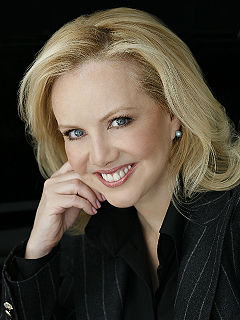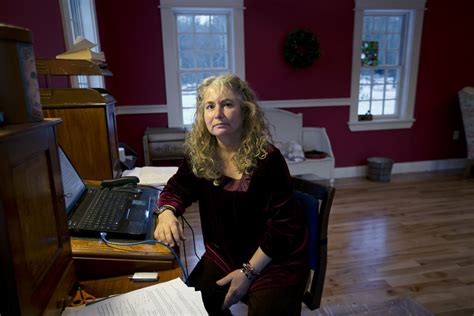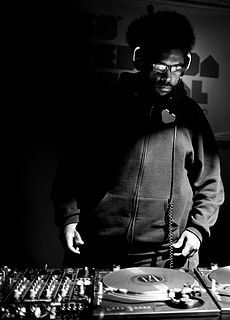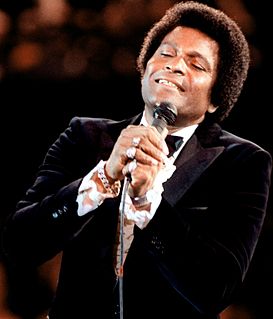Top 1200 Depression Quotes & Sayings - Page 2
Explore popular Depression quotes.
Last updated on April 16, 2025.
My parents, like others of "The Greatest Generation" who lived through the Great Depression and World War II, wanted to provide the best possible life for their children. My mother and father both attended college but dropped out to earn a living during the Depression, working the rest of their lives at blue-collar work.
I know, perhaps as well as anyone, what depression means, and what it is to feel myself sinking lower and lower. Yet at the worst, when I reach the lowest depths, I have an inward peace which no pain or depression can in the least disturb. Trusting in Jesus Christ my Savior, there is still a blessed quietness in the deep caverns of my soul.
I know many of you are hurting and angry about the economy, and I don't blame you. It's the worst economy since the Great Depression. When consumers can't buy and businesses won't expand for lack of customers, the government has to be the purchaser and employer of last resort. We learned that in the Great Depression, but Republicans obviously didn't - and they've blocked every jobs program I've offered.
To illustrate the vain conceit that the universe must be somehow pre-ordained for us, because we are so well-suited to live in it, he [Douglas Adams] mimed a wonderfully funny imitation of a puddle of water, fitting itself snugly into a depression in the ground, the depression uncannily being exactly the same shape as the puddle.
The Fed was largely responsible for converting what might have been a garden-variety recession, although perhaps a fairly severe one, into a major catastrophe. Instead of using its powers to offset the depression, it presided over a decline in the quantity of money by one-third from 1929 to 1933 ... Far from the depression being a failure of the free-enterprise system, it was a tragic failure of government.
Some authors have conceptualized depression as a "depletion syndrome" because of the prominence of fatigability; they postulate that the patient exhausts his available energy during the period prior to the onset of the depression and that the depressed state represents a kind of hibernation, during which the patient gradually builds up a new story of energy.
The Panic of 1819 exerted a profound effect on American economic thought. As the first great financial depression, similar to a modern expansion-depression pattern, the panic heightened interest in economic problems, and particularly those problems related to the causes and cures of depressed conditions.
My parents have been very supportive, in fact, it was my mother who identified that what I was going through was actually depression. My family and friends never let me feel as if something was wrong with me. They made me feel that what I was going through was okay. They supported my decision to take medication for depression.
In my mind, depression is, like all non-communicable diseases, a physiologically expressed condition which is profoundly influenced by our social and cultural environments. Depression is a global crisis not only because it is common and universal, but because the vast majority of affected people suffer in silence or receive inappropriate care.
Unless you are political or intellectual, events like the Depression are seen as personal events. We thought of the Depression as something that made the pipes freeze; we thought it hit us because Daddy didn't move his taxi stand and because he broke his hip. It was only later I found out it was a national phenomenon.
When people say there is a 'reason' for the depression, they insult the person who suffers, making it seem that those in agony are somehow at fault for not 'cheering up.' The fact is that those who suffer - and those who love them - are no more at fault for depression than a cancer patient is for a tumor.
Aristocratic depression has this cosmic dimension to it, where it's asking these big questions about, "Why?" "What is the purpose of all this?" Neuroses of the middle class is the banishment of aristocratic depression, because it's kind of this obsession with quotidian detail that pushes these larger questions away.
It's awful to have a depression, but it's a great thing to have a depression mentality because it means that we are not speculating, we are not living beyond our means, we don't quit our job to take a big risk because we know we might not get another job. There is something stable about a country, a society built on those values.
A state does not simply fall apart as a result of depression... [Weimar Germany] was not destroyed by economic depression or widespread unemployment, though these naturally contributed to the atmosphere of doom, but because the Weimar Right was resolved to abolish the parliamentary state in favour of a vaguely conceived authoritarian state.
In the psychological literature, depression is often seen as a defense against sadness. But I'll take sadness any day. There is no contest. Sadness carries identification. You know where it's been and you know where it's headed. Depression carries no papers. It enters your country unannounced and uninvited. Its origins are unknown, but its destination always dead-ends in you.
In the end, I do not think we will find the neat boundary between 'normal sadness' and 'clinical depression,' if only because mood is an innate human characteristic, like weight or the length of our hair. However, to reject the very notion of depression as an illness on account of these difficulties is throwing the baby out with the bath water.
Depression is a death within, a knowledge - terrifying - that you cannot resurrect yourself. Depression is loss of the vision that lets leaves breathe and fall, that lets the air smell of seed and soil. And there must be rage, yes I think there is rage toward such a severing, such a ragged-deep rupture with the world.
Until the Great Depression, most economists clung to a vision of capitalism as a perfect or nearly perfect system. That vision wasn’t sustainable in the face of mass unemployment, but as memories of the Depression faded, economists fell back in love with the old, idealized vision of an economy in which rational individuals interact in perfect markets.
The Great Depression was going on, so that the station and the streets teemed with homeless people, just as they do today. The newspapers were full of stories of worker layoffs and farm foreclosures and bank failures, just as they are today. All that has changed, in my opinion, is that, thanks to television, we can hide a Great Depression. We may even be hiding a Third World War.
It's very important to me that people know that depression doesn't discriminate. A lot of people look at people who have depression and think that it's not legitimate because they're wealthy or it looks like everything seems to be doing fine. But it doesn't pick and choose. It can affect anybody in the brain, no matter how perfect your life seems.
There is enormous shame around depression of any kind and at any time. And there's enormous social stigma attached to it, which we need to go on fighting. But I think that the sense of depression during pregnancy and early motherhood has been particularly stigmatized, that people especially feel that should be the happiest time of your life.
The most important thing to remember about depression is this: you do not get the time back. It is not tacked on at the end of your life to make up for the disaster years. Whatever time is eaten by a depression is gone forever. The minutes that are ticking by as you experience the illness are minutes you will not know again.
This depression comes over me whenever the Lord is preparing a larger blessing for my ministry; the cloud is black before it breaks, and overshadows before it yields its deluge of mercy. Depression has now become to me as a prophet in rough clothing, a John the Baptist, heralding the nearer coming of my Lord's richer benison
That's the thing I want to make clear about depression: It's got nothing at all to do with life. In the course of life, there is sadness and pain and sorrow, all of which, in their right time and season, are normal-unpleasant, but normal. Depression is an altogether different zone because it involves a complete absence: absence of affect, absence of feeling, absence of response, absence of interest. The pain you feel in the course of a major clinical depression is an attempt on nature's part (nature, after all, abhors a vacuum) to fill up the empty space.
















































